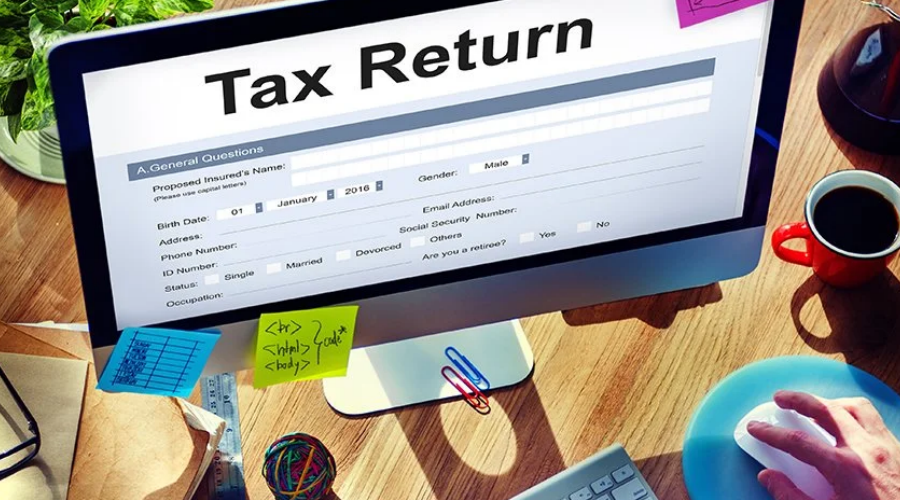Freelancers and entrepreneurs have unique tax challenges, but there are ways to minimise their tax liability, increase their take-home pay, and optimise their deductions. Here are some tax-saving ideas to help you manage tax season and get the most of your deductions, whether you’re self-employed, running a small business, or juggling numerous jobs. If you are an entrepreneur or freelancer, you need to know these 10 tax tactics.
1. Separate Business and Personal Expenses
One of the easiest ways to simplify your tax process is by keeping business and personal expenses separate. Use a dedicated business bank account and credit card to track all business-related expenses. This approach makes it easier to identify deductible expenses and protects you in case of an audit.
Why It Matters: Separating expenses reduces the risk of overlooking deductions and simplifies your bookkeeping.
2. Take Advantage of the Home Office Deduction
If you work from home, you may be eligible for the home office deduction. This deduction allows you to write off a portion of your rent or mortgage, utilities, and even repairs if they directly affect your home office space. Ensure the space is used exclusively for business purposes to qualify.
How It Works: The IRS offers two methods for this deduction: the simplified method (a standard deduction based on square footage) or the regular method (actual expenses based on the percentage of your home used for business).
3. Maximise Retirement Contributions
Retirement savings accounts like SEP IRAs, SIMPLE IRAs, or solo 401(k)s can help you save for retirement and reduce your taxable income. Contributing to a retirement plan not only builds your financial future but also offers significant tax savings each year.
Why It Matters: Contributions to these retirement accounts are tax-deductible, lowering your current taxable income.
4. Deduct Health Insurance Premiums
Freelancers and self-employed individuals can deduct health insurance premiums for themselves, their spouses, and dependents. This deduction can be taken even if you don’t itemise deductions and can lead to substantial savings on your tax bill.
Tip: Keep records of all health insurance premiums paid to claim this deduction.
5. Track Mileage and Travel Expenses
If you use your car for business, you can claim a mileage deduction or deduct the actual expenses related to business use, like fuel and repairs. Similarly, if you travel for work, expenses for airfare, lodging, and meals are deductible.
How It Works: Use apps like MileIQ or QuickBooks Self-Employed to track your mileage accurately, or keep detailed records of travel expenses to maximise deductions.
6. Claim Internet and Phone Bills
As a freelancer or business owner, your phone and internet bills are likely essential to your work. You can deduct a portion of these expenses based on the percentage used for business purposes.
Why It Matters: Even a partial deduction for internet and phone bills can add up to significant savings, especially if you rely on these services to connect with clients.
7. Deduct Business Education and Training Costs
Investment in courses, workshops, or certifications related to your business can qualify as a business expense. Deducting education expenses allows you to stay competitive in your field while benefiting from tax savings.
What Qualifies: Any education or training that enhances your skills or helps you maintain your business can be deducted.
8. Keep Track of Marketing and Advertising Expenses
Whether it’s a website, social media ads, or print materials, marketing costs are fully deductible as business expenses. If you’re investing in your brand or attracting new clients, make sure to claim these deductions.
Tip: Keep digital or physical receipts for all advertising expenditures, from website hosting fees to advertising campaigns, to ensure they’re properly documented.
9. Utilise the Qualified Business Income Deduction (QBI)
The Qualified Business Income Deduction allows eligible freelancers and small business owners to deduct up to 20% of their business income. This deduction was introduced under the Tax Cuts and Jobs Act and applies to certain types of businesses, including sole proprietorships, partnerships, and S corporations.
How to Qualify: Check with a tax professional to ensure your business meets the requirements for this valuable deduction.
10. Hire a Tax Professional
Finally, consider working with a tax professional who understands the nuances of freelance and small business taxes. They can help you identify additional deductions, file correctly, and provide advice on managing your taxes throughout the year. For freelancers and entrepreneurs, investing in expert guidance can prevent costly mistakes.
Why It Matters: A tax expert can save you time, maximise your deductions, and ensure compliance with tax laws, allowing you to focus on growing your business.
Conclusion
Tax planning as a freelancer or entrepreneur doesn’t have to be overwhelming. By using these 10 strategies, you can reduce your taxable income, maximise your deductions, and minimise your tax liability. Whether you’re new to freelancing or running a growing business, proactive tax management will keep your finances healthy and help you retain more of your earnings.







